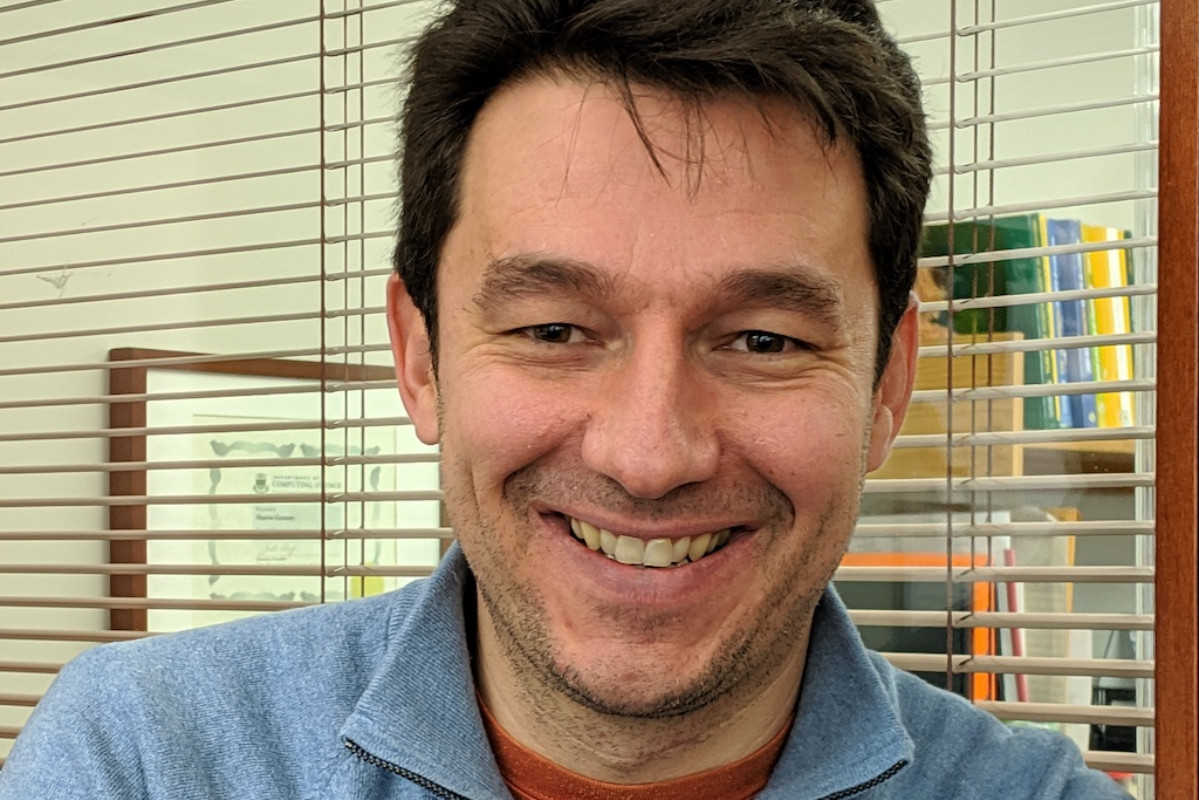Denilson Barbosa appointed Associate Dean (Undergraduate)
Donna McKinnon - 8 February 2023
Denilson Barbosa joins the Faculty of Science leadership team as associate dean (undergraduate) from the Department of Computing Science where he has been a faculty member for 15 years. In this new role, Denilson will be a key member of the faculty leadership team, helping to support Student Services and our notable student population as the University of Alberta’s largest undergraduate faculty, as we move to streamline and simplify our operations and implement updates to Faculty of Science programs in the year ahead. In addition to his contributions to the faculty, Denilson will remain an active member of his home department in both teaching and learning.
Denilson’s research focuses on knowledge management, information retrieval, natural language processing, AI and machine learning. He has served as the associate chair (graduate) for his department and is co-PI of LINCS — Linked Open Data for Canadian Cultural Research, a CFI-funded consortium building open knowledge graphs to mobilize cultural and heritage artifacts, and is a lead researcher with the Scotiabank Artificial Intelligence Research Initiative at the U of A.
Congratulations Denilson!
What excites you most about taking on this new role, particularly as it’s focused on undergraduate education?
I have always been drawn to service and teaching roles with the potential for improving student life. In that sense, I can't see a more rewarding role than that of ADU. Every second I spend in that role I am contributing to improve student experience. Also, the Faculty of Science has a tradition of having truly outstanding ADUs, keeping with the world-leading status of our university. I was honoured to hear that my name was in a short list of candidates for this role, and I did not hesitate a second in accepting the challenge. I am truly excited to work with the fantastic team in the Student Services office and my fellow ADUs.
Although it’s early days, as you understand it, what are the expectations for this position and what are the challenges, and/or what do you hope to achieve over the next few years?
One word sums it up: excellence. This is what our students deserve, and this is also what every faculty member and staff in our faculty is committed to. I look forward to working very closely with everyone in the dean's office, particularly with the other ADUs, and with all departments in identifying and implementing strategies to improve student experience while reducing, as much as possible, the workload on our staff and faculty. We face many challenges, some related to an ever increasing enrollment pressure while others related to the uncertainties we face as we go through university-wide change. One must not forget the changes in technology — such as chatGPT, as a potential example — that bring not only formidable challenges but also opportunities for all of us.
Please describe your current research. How will this new role affect your teaching and research?
While my background is in data management, lately I have been working on natural language processing, which is an interdisciplinary field involving linguistics and computing science dedicated to the use and understanding of human language by computers. More specifically, I am interested in understanding texts to identify factual information and in organizing that information to enable applications such as search and question answering. I am also interested in understanding language usage in particular social contexts. For example, I have worked with a gaming company to understand how video game players interact with one another, and I currently work with colleagues in the Faculty of Arts on projects related to understanding extremism in social media related to political discussions. I am also working on an app to map different accents across Canada.
Luckily, there is no shortage of ways to use language processing in education, matching my new responsibilities well. One potential example being researched in this field is using language analysis tools to partially automate the scoring of essays. Another example would be in student advising, where we could use apps to help answer student questions, including from those still in high school interested in joining the U of A. I am sure that several of the challenges as ADU will become opportunities for using my research to improve student life in the faculty.
What drew you to this area of research?
I started my research career at the time that the World Wide Web was transitioning from a niche academic system into the massive (and very noisy) platform for the sharing of information, data, and opinions that it is today. That led me to transition from my early fascination with formal logic and databases into the incredibly more diverse and complex world of language. To paraphrase a dear colleague here, "words move", and the complexities and beauty of language have moved me to look for ways to develop tools to help domain experts with no computing background do their work. I thoroughly enjoy collaborating with colleagues outside of computing science and I envision doing that for many years to come.
What do you do for fun, outside of work?
I coach youth soccer at a competitive (club) level. I have been coaching for almost three years now and I have recently taken over my son's team as head coach. He has played for more than half of his young life and we both take it very seriously. I thoroughly enjoy working with the players and other coaches. Every time I step into the Edmonton Soccer Dome the outside world disappears: it's just me and the beautiful game. Of course, as a coach dedicated to excellence, I am required to watch and carefully analyze, let's say, a few pro games every weekend.
